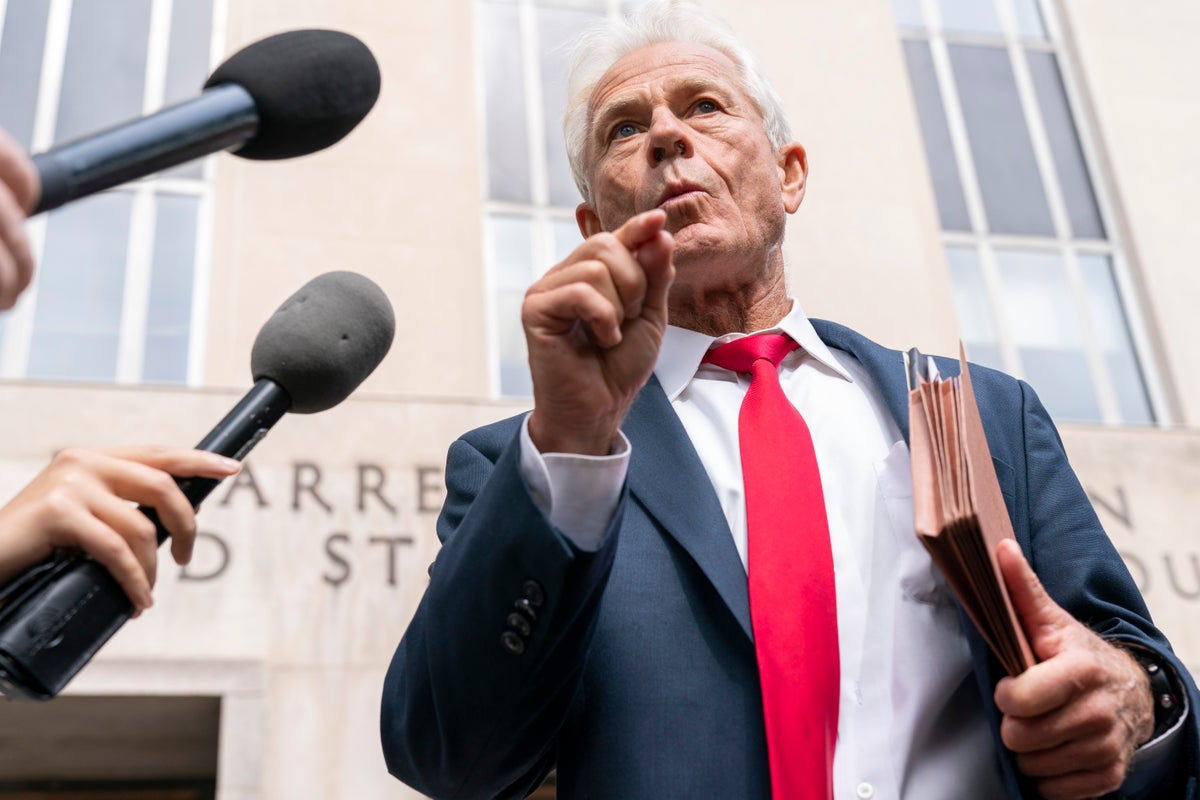
A Washington DC federal judge has ordered former Trump White House aide Peter Navarro to turn over to the National Archives and Records Administration numerous emails he sent and recieved from his personal email account during his time in government, ending a lawsuit the Department of Justice filed against the ex-White House trade adviser last year.
Judge Colleen Kollar-Kotelly ordered Mr Navarro to begin “immediate compliance” with her ruling, which granted a government motion for summary judgment in the case.
The DOJ lawsuit arose out of a dispute over emails to and from Mr Navarro during his time serving as Assistant to the President and Director of the Office of Trade and Manufacturing Policy under former president Donald Trump. The emails were hosted on Mr Navarro’s private account on the ProtonMail encrypted email service, and while federal law requires government employees to forward any official correspondence to their government email accounts within 20 days of sending or receiving such correspondence on their personal accounts, he never complied with that provision of the law.
Under the Presidential Records Act, the National Archives was to take possession of all Trump administration records at the end of Mr Trump’s term on 20 January 2021. When Archives officials learned of Mr Navarro’s private email usage, they asked him to provide any emails in his possession that were not turned over before Mr Trump left office.
Judge Kollar-Kotelly noted that Mr Navarro ignored repeated requests from the Archives, and only began to “engage” with the government once the Department of Justice advised that he’d be sued if he failed to turn over the emails in question, which constituted roughly 250 presidential records.
But the ex-Trump aide, through counsel, refused to turn over the records unless he was granted immunity from prosecution in exchange for returning the records.
After the DOJ filed suit seeking return of the emails, Mr Navarro’s lawyers argued in court papers that the department could not sue for them because the Presidential Records Act has no enforcement mechanism, nor does it have a deadline by which he had to turn them over.
But the senior district court judge, who was named to the federal bench by President Bill Clinton in 1997, wrote in her opinion that Mr Navarro’s arguments “ignore or contravene the statute’s purpose, framework and provisions”.
“The PRA makes plain that Presidential advisors such as Dr. Navarro are part and parcel of the statutory scheme in that they are required to preserve Presidential records during their tenure so that they can be transferred to NARA at the end of an administration,” she said.
The dispute over the Trump-era records is not Mr Navarro’s only tangle with the DOJ. Last year, a District of Columbia grand jury indicted him on two charges of criminal contempt of Congress for ignoring a subpoena for documents and testimony issued by the House January 6 select committee.
Mr Navarro is expected to be tried on those charges later this year.







